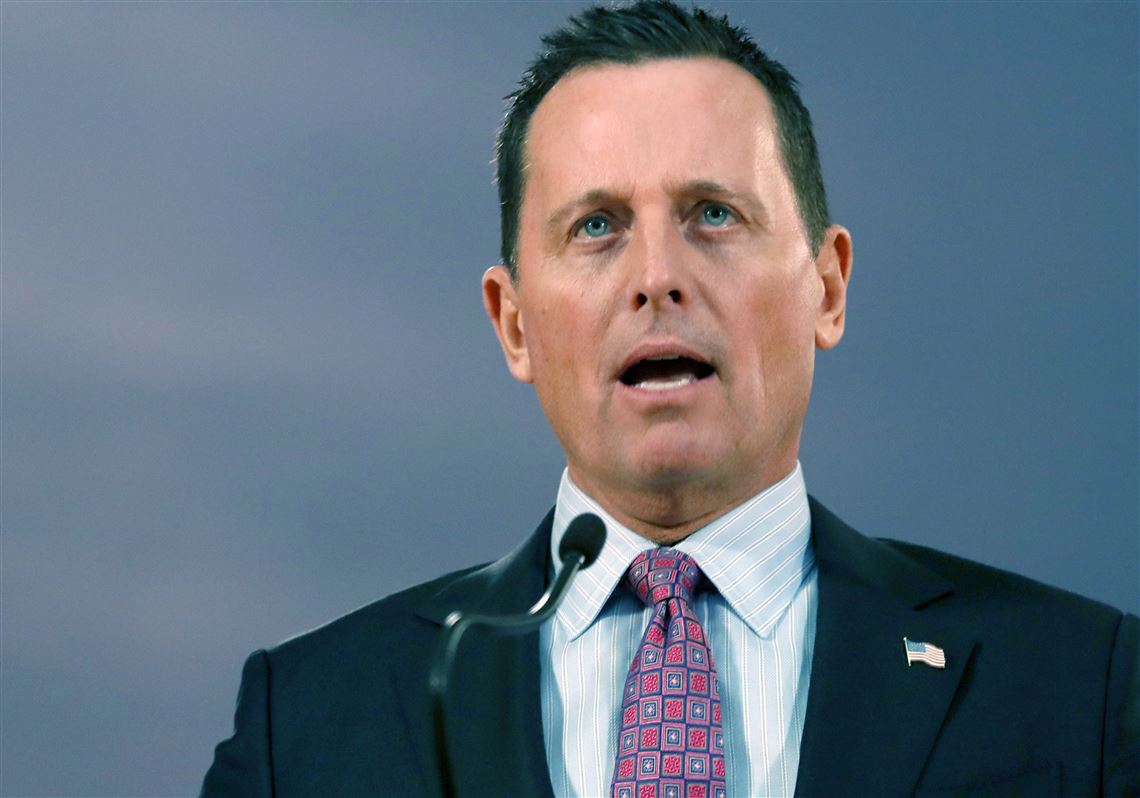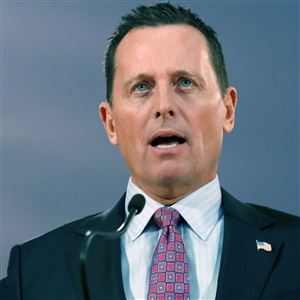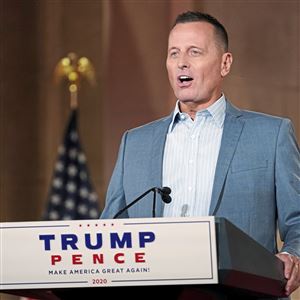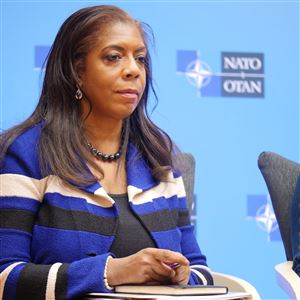Carnegie Mellon University’s naming of a former ambassador and Trump administration aide as senior fellow — and the criticism that followed — led its provost late Tuesday to email colleagues in defense of the one-year appointment.
Some on and off campus took aim at the selection in recent days of Richard Grenell to CMU’s Institute of Politics and Strategy, citing his politics and his outspoken support for President Donald Trump. Provost James Garrett Jr. called it a matter of academic freedom for the institute’s director, Kiron Skinner, to make the selection.
Ms. Skinner said Mr. Grenell will offer Carnegie Mellon “a unique perspective to the practice of U.S. diplomacy and politics.”
Mr. Grenell is a former U.S. ambassador to Germany, who also served as acting director of national intelligence this year. The university announced the appointment internally and on its website last week.
University officials pointed to Mr. Grenell’s decade-long experience in diplomacy and international relations. Mr. Grenell, who also spent eight years as U.S. spokesman at the United Nations before being named ambassador in 2018, will engage with students and faculty, according to the announcement that quoted the institute’s director.
“Ambassador Ric Grenell’s role as acting director of the Office of National Intelligence has given him a unique understanding of the complexities facing the intelligence community and how to address them,” said Ms. Skinner, also a professor of international relations and politics. “I am struck by the fact that Ambassador Grenell is especially interested in sharing his insights with our students and faculty as well as learning from them.”
Ms. Skinner noted that he was the nation’s first openly gay member of a president’s cabinet, a political conservative and a Christian.
Mr. Grenell declined comment Wednesday through a university spokesman, Jason Maderer.
Ms. Skinner was appointed to President-elect Trump’s transition team in 2016. She later served as a top State Department adviser but has since returned to her campus role.
On social media, a number of students, faculty and others have sharply criticized Mr. Grenell’s appointment in recent days, citing what they called his hard-right politics and what some described as being an enabler of Mr. Trump’s agenda.
An open letter now circulating has collected scores of names and was drafted by several undergraduate student senators, though as yet it is not endorsed by the entire body. They had concerns including Mr. Grenell’s “apparent history of inflammatory statements,” said Liam O’Connell, chair of the undergraduate student senate. Some signed but withheld their names.
“[P]eople who propped up Trump, helped to execute his agenda, should not be welcomed to CMU,” tweeted Jeff Bigham, an associate professor in CMU’s Human-Computer Interaction Institute.
“Why would you do that?” tweeted Gen. Michael Hayden, principal with The Chertoff Group and former director of the Central Intelligence Agency and National Security Agency, in a message that carried a link to the announcement.
On Sunday night, Ms. Skinner issued a statement saying the institute is committed to intellectual diversity, employs numerous faculty of color in its Pittsburgh and Washington, D.C., offices and welcomes all political views. “It is in the spirit of intellectual freedom that I proudly invited Ambassador Richard Grenell to become an IPS Senior Fellow,’” she said.
Mr. Grenell will not teach classes, she added, “but will engage with the CMU community in a variety of forums designed to increase our understanding of the new Europe, international relations more broadly, and the U.S.-led diplomatic effort to decriminalize homosexuality throughout the world.”
On Tuesday, Mr. Garrett sent an email of his own defending the selection. He said the deans of the Dietrich College of Humanities and Social Sciences, the College of Engineering, and the School of Computer Science, who supervise IPS, saw it as a matter of academic freedom.
“This same academic freedom protects deans and department heads in appointments they might make. It also protects each member of the faculty from interference in the types of speakers they invite to campus or the types of scholarly and artistic works in which they endeavor,” the provost wrote. “Limiting that academic freedom in one case would create a precedent that could jeopardize all of us in the future.”
According to Carnegie Mellon, Mr. Grenell holds a master’s degree in public administration from Harvard University’s John F. Kennedy School of Government as well as a bachelor’s degree in government and public administration from Evangel University, a private Christian school in Missouri.
A decade ago, he founded the international consulting firm Capitol Media Partners. He has contributed to Fox News and written for The Wall Street Journal, The Los Angeles Times, CBS News, CNN and The Washington Times, according to the university.
He also previously taught at the University of Southern California’s Annenberg School of Communications, university officials said.
Bill Schackner: bschackner@post-gazette.com, 412-263-1977 and on Twitter: @Bschackner
First Published: June 17, 2020, 8:53 p.m.




















